AMONG

SATURDAY, OCTOBER 8 AT 8:00 P.M. HEINZ HALL
FRIENDS WITH KAREN GOMYO PRESENTED BY
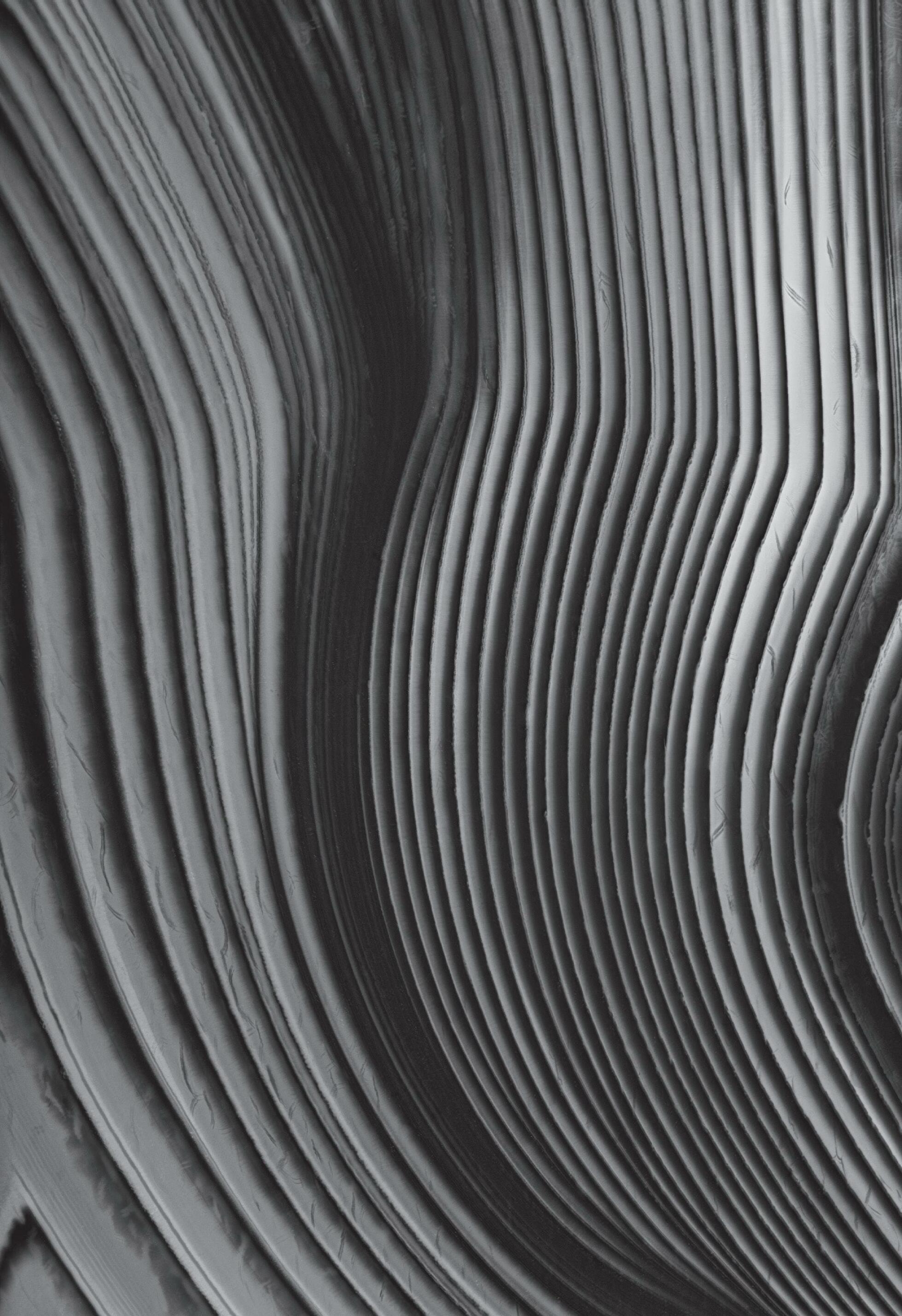
You want a partner who
will
play harmony with you, and elevate your performance. That's us. Dentons Cohen & Grigsby is proud to support the Pittsburgh Symphony Orchestra. © 2022 Dentons. Dentons is a global legal practice providing client services worldwide through its member firms and affiliates. Please see dentons.com for Legal Notices. Dentons, the law firm of the future is here. dentons.com Grow | Protect | Operate | Finance
MUSIC DIRECTOR
Manfred Honeck
ENDOWED BY THE VIRA I. HEINZ ENDOWMENT
PRINCIPAL POPS CONDUCTOR
Byron Stripling
ENDOWED BY HENRY & ELSIE HILLMAN
ASSISTANT CONDUCTOR
Moon Doh
Jacob Joyce
FIRST VIOLIN
David McCarroll
CONCERTMASTER
RACHEL MELLON WALTON CHAIR
Huei-Sheng Kao
ASSISTANT CONCERTMASTER
Kelsey Blumenthal
Justine Campagna
Ellen Chen-Livingston
SELMA WIENER BERKMAN MEMORIAL CHAIR
Irene Cheng
Sarah Clendenning
LOIS R. BROZENICK MEMORIAL CHAIR
Alison Peters Fujito
Marta Krechkovsky
SNAPP FAMILY FIRST VIOLIN CHAIR
Dylan Naroff
Jennifer Orchard
Susanne Park
DR. ALAN & MARSHA BRAMOWITZ CHAIR
Christopher Wu
NANCY & JEFFERY LEININGER CHAIR
Kristina Yoder
SECOND VIOLIN
Jeremy Black j
G. CHRISTIAN LANTZSCH
& DUQUESNE LIGHT COMPANY CHAIR
Louis Lev d
THE MORRISON FAMILY CHAIR
Dennis O’Boyle X
Laura Motchalov
WILLIAM & SARAH GALBRAITH CHAIR
Andrew Fuller
Lorien Benet Hart
ARLYN GILBOA CHAIR

Yeokyung Kim
Claudia Mahave
ALICE VICTORIA GELORMINO CHAIR
Cecee Pantikian
Regi Papa
Yingchen Zhang
Ran Cheng r
Shannon Fitzhenry r Eliot Heaton r
Ross Snyder r
VIOLA
Tatjana Mead Chamis Q
JON & CAROL WALTON CHAIR
Joen Vasquez E
Marylène
Gingras-Roy L
Laura Fuller Sean Juhl
Erina GoldwasserLaraby-
Aaron Mossburg
Stephanie Tretick
Andrew Wickesberg
MR. & MRS. MARTIN G. MCGUINN CHAIR
Rimbo Wong r
Si Yu r
CELLO
Anne Martindale Williams j
PITTSBURGH SYMPHONY ASSOCIATION CHAIR
David Premo db
DONALD I. & JANET MORITZ AND EQUITABLE RESOURCES, INC. CHAIR
Adam Liu X
GEORGE & EILEEN DORMAN CHAIR
Mikhail Istomin
SUSAN CANDACE HUNT CHAIR
Bronwyn Banerdt Will Chow b
Michael DeBruyn
Alexandra Lee
WILLIAM BLOCK MEMORIAL CHAIR
Michael Lipman
JANE & RAE BURTON CHAIR
Charlie Powers
HALEYFESQ CELLO CHAIR
Karissa Shivone Aron Zelkowicz r
BASS
Nicholas Myers j
Brandon McLean d
Joseph Campagna
Jeffrey Grubbs
MICHAEL & CAROL BLEIER CHAIR
Peter Guild
Micah Howard
STEPHEN & KIMBERLY KEEN CHAIR John Moore
Aaron White
HARP
Gretchen Van Hoesen j
VIRGINIA CAMPBELL CHAIR
FLUTE
Lorna McGhee j
JACKMAN PFOUTS CHAIR
Austin Brown d
Jennifer Steele
HILDA M. WILLIS FOUNDATION CHAIR
PICCOLO
Rhian Kenny j
FRANK & LOTI GAFFNEY CHAIR
OBOE Cynthia DeAlmeidaKoledo j
DR. WILLIAM LARIMER MELLON JR. CHAIR Max Blair d
Nora Prener r
ENGLISH HORN Kyle Mustain j
CLARINET
Michael Rusinek j
MR. & MRS. AARON SILBERMAN CHAIR Victoria Luperi d
Ron Samuels
SIDNEY STARK, JR. MEMORIAL CHAIR
E-FLAT CLARINET Victoria Luperi j
BASS CLARINET
Jack Howell j
MR. & MRS. WILLARD J. TILLOTSON, JR. CHAIR
BASSOON
Nancy Goeres j
MR. & MRS. WILLIAM GENGE
AND MR. & MRS. JAMES E. LEE CHAIR David Sogg h Philip A. Pandolfi
CONTRABASSOON James Rodgers j
HORN William Caballero j
ANONYMOUS DONOR CHAIR
Stephen Kostyniak d
Zachary Smith x Mark Houghton Robert Lauver
TRUMPET
Micah Wilkinson j
MARTHA BROOKS ROBINSON CHAIR
Charles Lirette h
Neal Berntsen
Chad Winkler
SUSAN S. GREER
TROMBONE
Peter Sullivan j
James Nova
Cooper Cromwell-Whitley
BASS TROMBONE
Jeffrey Dee j
WILLIAM
TUBA
Craig Knox j
TIMPANI
James Benoit j
Christopher Allen d
PERCUSSION
Andrew Reamer j
Jeremy Branson Q Christopher Allen
LIBRARIAN
Lisa Gedris j
JEAN
Sheryl Hadeka
KEYBOARD
Rodrigo Ojeda
MR.
STAGE TECHNICIANS
Ronald Esposito Tommy Gorman
3PSO360 ASCEND TO THE STAGE 2022-2023 SEASON 2
MEMORIAL CHAIR
TOM & JAMEE TODD CHAIR
ANN MCGUINN CHAIR
PAUL J. ROSS FELLOW
& JACQUELINE HERBEIN CHAIR
DR. MARY ANN CRAIG CHAIR
BARBARA WELDON CHAIR
ALBERT H. ECKERT CHAIR
& SIGO FALK CHAIR
& MRS. BENJAMIN F. JONES III GUEST KEYBOARD CHAIR
SPECIAL THANKS TO THE PERRY & BEEJEE MORRISON STRING INSTRUMENT LOAN FUND j PRINCIPAL h CO-PRINCIPAL d ASSOCIATE PRINCIPAL X ASSISTANT PRINCIPAL Q ACTING PRINCIPAL E ACTING ASSOCIATE PRINCIPAL L ACTING ASSISTANT PRINCIPAL b ON LEAVE r 2022-23 SEASON MUSICIAN

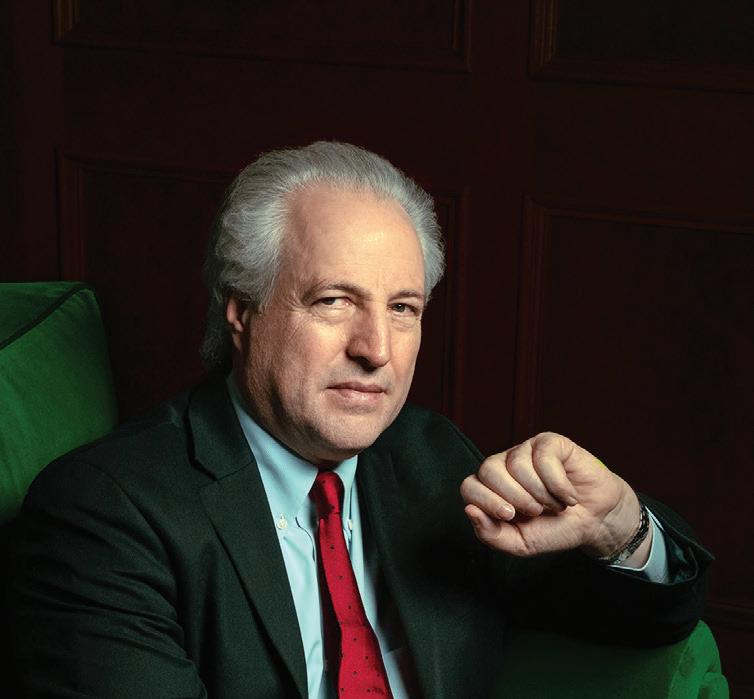
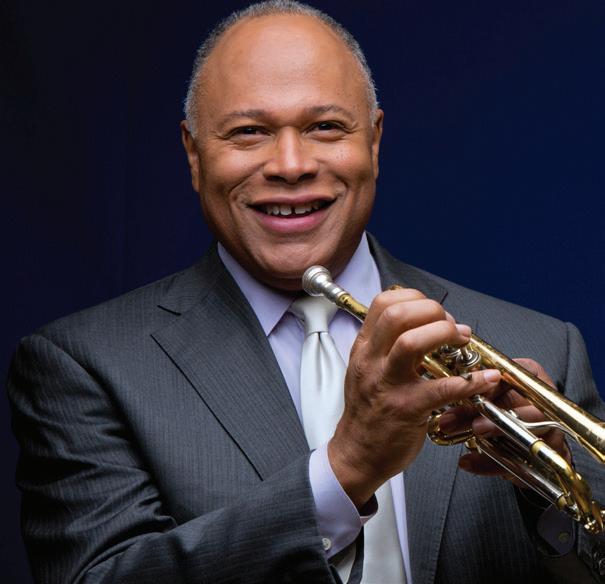





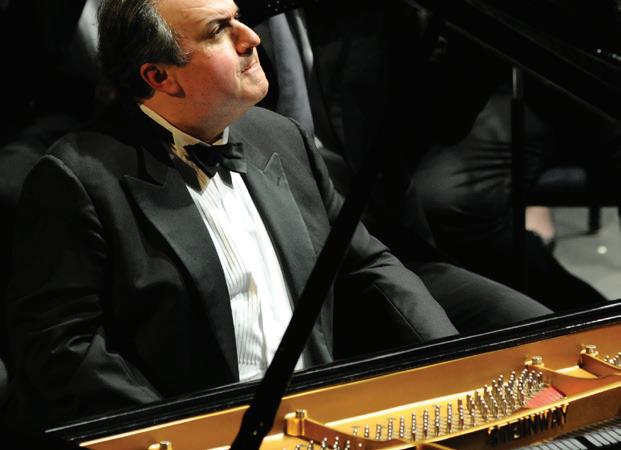
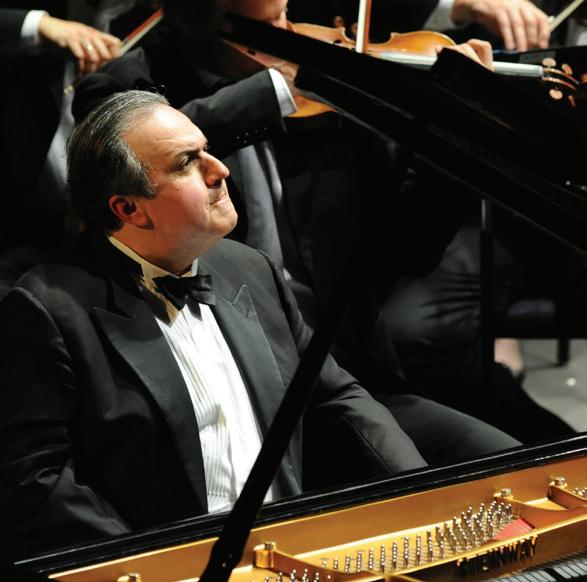



BYRON STRIPLING PRINCIPAL POPS CONDUCTOR MANFRED HONECK MUSIC DIRECTOR POPS TITLE SPONSORGRAND CLASSICS TITLE SPONSOR 2022-2023 Season RAY CHEN YEFIM BRONFMAN THE DOO WOP PROJECT NOAH BENDIX-BALGLEY RENÉE ELISE GOLDSBERRY
MARIA
DUEÑAS Scan to explore the 2022-2023 season or visit www.pittsburghsymphony.org/subscribe
PSO360: AMONG FRIENDS | HEINZ HALL
SATURDAY, OCTOBER 8, 2022 AT 8:00 PM
Karen Gomyo, violin & leader
David McCarroll, violin
Anne Martindale Williams, cello
Rodrigo Ojeda, keyboard
Heinrich von Biber Battalia à 10 Sonata — For Dissolute Company with All Manner of Humors Presto — March — Presto — Aria — The Battle — L ament for the Wounded Soldiers
Béla Bartók
Heinrich von Biber
Selections from 44 Duos for Two Violins
16. Burlesque 9. Play Song 36. T he Bag Pipe 12. Hay Song 31. New Year’s Song No. 4 43. Pizzicato 19. A Fairy Tale 32. Dance from Máramaros 33. Song of the Harvest 35. Ruthenian Kolomejka 28. Sorrow 42. A rabian Song Ms . Gomyo Mr. McCarroll
Selections from Harmonia artificioso-ariosa Praeludium from Partita No. 6 in D major Ciaconna from Partita No. 3 in A major Passacaglia from Partita No. 5 in G minor Ms. Gomyo Mr. McCarroll Ms. Martindale Williams Mr. Ojeda
Piotr Ilyich Tchaikovsky
Selections from Souvenir de Florence, Opus 70
III. A llegro moderato IV. A llegro vivace
The Pittsburgh Symphony Orchestra recognizes the continued support from Dr. Owen Cantor in honor of the musicians of the Orchestra and the PSO360 concert series.
PHOTOGRAPHY, AUDIO AND VIDEO RECORDING OF THIS PERFORMANCE ARE STRICTLY PROHIBITED.
5PSO360 PROGRAM 2022-2023 SEASON
PRESENTED BY
HEINRICH IGNAZ FRANZ VON BIBER
Heinrich Ignaz Franz von Biber, one of old Germany’s most brilliant musicians, was born into the family of a forester at Wartenberg, Bohemia on August 12, 1644. Little is known of his musical training, but he had made a sufficient name for himself as a composer and violinist by 1668 to be appointed to the staff of the country estate at Kromeříž of Count Karl Liechtenstein-Kastelkorn, Prince-Bishop of Olmütz. Biber bolted from the Count’s service for unknown reasons in 1670, closely followed by a warrant for his arrest. He holed up at Absam, near Innsbruck, with the violin maker Jacob Stainer and found a new position at the Salzburg court of Archbishop Maximilian Gandolph in 1672. He married there, and rose steadily through the ranks of the archiepiscopal music establishment — Cathedral Choir Director in 1677, Vice-Kapellmeister in 1679, Kapellmeister and Dean of the choir school in 1684; he was ennobled by Emperor Leopold in 1690. When Biber died, in Salzburg on May 3, 1704, he was acknowledged throughout the German-speaking lands as the greatest violinist of his time and one of the day’s most distinctive and original composers.

Biber’s Battalia, one of Baroque music’s most audacious creations, depicts the sounds and sequence of battle. It opens with a Sonata that evokes drums and trumpets by the repeated notes and mock fanfaronades of the strings. There follows a patch of music For Dissolute Company with All Manner of Humors, which piles eight different (presumably) quoted melodies upon each other in riotous discord. A note in the score warns, “Here all parts are dissonant, since different songs are being bellowed out at once.” (Only one these tunes has been securely identified: Kraut und Rüben — “Cabbage and Beets” — also planted by Bach in his Goldberg Variations.) After a short Presto interlude comes a March, with whirling fife-like signals from the violin and drum rumbles in the bass, whose rattling verisimilitude Biber said could be enhanced by tucking a piece of paper beneath the strings. The galloping Presto probably denotes the assembly of the cavalry. The tender Aria is a thoughtful farewell before The Battle, which is portrayed by furious figurations in the upper strings and slapping pizzicatos in the basses. (“The string must be plucked strongly with the right hand in imitation of the cannon!”) The solemn finale is a Lament for the Wounded Soldiers. Though Battalia takes war as its subject, just how seriously Biber intended this musical painting to be received is thrown into some doubt by the dedication on the work’s title page — to Bacchus, the god of wine and revelry.
BÉLA BARTÓK
In December 1931, Erich Doflein (1900-1977), a German musicologist and violin teacher at Freiburg, asked Bartók for permission to arrange some of his folk-based pedagogical pieces collectively titled For Children for two violins and include them in a graded method for violin students. Bartók said he preferred to do something new himself, and agreed with Doflein to write a series of violin duos that would serve not only as teaching material but also as a means of introducing students to the beauties of folk music. Bartók based all but two of the Violin Duos on

6
(1881-1945) Selections from 44 Duos for Two Violins (1931)
(1644-1704) Battalia (“Battle”) à 10 (ca. 1673)
original folk tunes (No. 35, Ruthenian Dance, and No. 36, The Bag Pipe, are imitations of Ruthenian and Hungarian melodies) that embrace a wide variety of ethnic origins: Romanian, Ruthenian, Serbian, Ukrainian and Arabic, as well as Slovak and Hungarian.
HEINRICH IGNAZ FRANZ VON BIBER Selections from Harmonia artificioso-ariosa
in 1696)

Biber published his Harmonia artificioso-ariosa (“Harmonies of artifice and musical airs”) in 1696 in Salzburg, which comprises seven Partitas, suites of stylized dances and other formal types. The Harmonia takes to an extreme Biber’s penchant for scordatura, since each Partita uses a different tuning of the violin strings, a technique that allows for unusual arpeggiated figurations and an altered resonance from the instrument. The selections on this program include the Praeludium from the Partita No. 6, whose staid opening harmonies serve as a foil for the “dueling violins” that fill rest of the movement, and a Ciaconna (Chaconne) from Partita No. 3 and Passacaglia from Partita No. 5, both built on a repeating bass figure but very different in expressive effect.
PIOTR ILYICH TCHAIKOVSKY (1840-1893) Souvenir de Florence, Opus 70 (1890)
Tchaikovsky’s soul was seldom at rest in the years following his marital disaster in 1877, and he sought distraction in frequent travel abroad; Paris and Italy were his favorite destinations. In January 1890, he settled in Florence, and spent the next three months in that lovely city working on his latest operatic venture, Pique Dame (“The Queen of Spades”). He took long walks along the Arno, marveled that spring flowers sprouted in February, and savored the food. After a brief stay in Rome, he arrived back in Russia on May 1st, noting five days later to a friend that after finishing Pique Dame, “I want to make sketches for a sextet for strings.” The orchestration of the opera was completed by early the next month, and on June 12th he told his brother Modeste that he was “starting the string sextet tomorrow.” The work was sketched within a month, and performed privately in November, but Tchaikovsky reported to the composer Mikhail Ippolitov-Ivanov that “it turned out poorly in all respects.” He began a revision early in 1891, but did not finish it until the following year. It was at that time that Tchaikovsky, without further explanation, appended the phrase “Souvenir de Florence” to the work’s title. Despite its Italian title, the Souvenir de Florence is decidedly Russian in mood and melody, The two closing movements are based on folk-like themes, the first a sad song that is the subject of considerable elaboration as it progresses, the other a bounding Cossack dance.
 PROGRAM NOTES BY DR. RICHARD E. RODDA
PROGRAM NOTES BY DR. RICHARD E. RODDA
7PSO360 PROGRAM NOTES 2022-2023 SEASON
(published
KAREN GOMYO
Violinist Karen Gomyo has captivated audiences in North America, Europe and Australasia with her musical integrity, technical assurance and compelling interpretations.
In North America, Karen Gomyo has worked with the New York Philharmonic, the Cleveland and Philadelphia Orchestras, and the Chicago, San Francisco, Atlanta, Cincinnati, and Houston symphonies among many others. Recent and upcoming appearances include re-engagements with the St. Louis, Detroit, Milwaukee and Toronto symphonies and the Minnesota Orchestra.

Internationally, Karen Gomyo has appeared with the Philharmonia in London, City of Birmingham Symphony Orchestra, WDR Symphony Orchestra Cologne, Orchestre Symphonique de Radio France, Deutsches Symphony Orchestra Berlin and the Czech Philharmonic in Europe; and in Australasia with the Hong Kong Philharmonic and the Sydney and Melbourne symphonies. She returned to Prague in December 2021 to play the first Shostakovich Violin Concerto with the Czech Phil and Maestro Bychkov.
PSO SOLOISTS
Strongly committed to contemporary works, Karen Gomyo performed the world premiere of Samuel Adams’ Chamber Concerto with the Chicago Symphony Orchestra and Esa-Pekka Salonen, a work commissioned for her by the CSO. She also performed the North American premiere of Matthias Pintscher’s Concerto No. 2 “Mar’eh” with the composer conducting the National Symphony Orchestra. In April 2022, she will premiere a double concerto written for her and trumpet player Tine Thing Helseth by Xi Wang with the Dallas Symphony.
Born in Tokyo, Karen Gomyo studied in Montreal and in New York at The Juilliard School with famed violin pedagogue Dorothy DeLay. She plays on the “Aurora, exFoulis” Stradivarius violin made in 1703.
McCARROLL
David McCarroll was appointed concertmaster of the Pittsburgh Symphony Orchestra beginning with the 2022-2023 season and holds the Rachel Mellon Walton Concertmaster Chair.

David McCarroll has been described as “a violinist of mature musicality and deep understanding of his repertoire whose playing is distinguished by clarity of form and line” by Musik Heute. Winner of the 2012 European Young Concert Artists Auditions and Silver Medalist at the Klein International Competition, he made his concerto debut with the London Mozart Players in 2002 and has since appeared with orchestras including Radio Symphonieorchester Wien, Tonk ünstlerOrchester Niederösterreich (Simone Young,
Grafenegg), Hong Kong Sinfonietta (Christoph Poppen), Santa Rosa Symphony, Mendocino Festival Orchestra, and Philharmonie Zuidnederland.

He performs regularly in major concert halls including the Konzerthaus Berlin, Vienna Konzerthaus and Musikverein, Amsterdam’s Concertgebouw and Muziekgebouw, Wigmore Hall, Library of Congress, Kennedy Center, 92nd Street Y, and Carnegie Hall. His performances have been broadcast on radio stations including WGBH Boston, WQXR New York, National Public Radio, Ö1, BRKlassik and the BBC.
Recent performances have included Stravinsky’s violin concerto at the Konzerthaus Berlin, touring with Musicians from Marlboro, and performances of György Kurtág’s “Kafka
8
DAVID
Fragments” for violin and soprano. In 2015, he joined the Vienna Piano Trio, with whom he has toured and recorded extensively. The Trio’s recording of the complete Brahms piano trios won the 2017 Echo Klassik award, and in 2020 the Trio’s Beethoven recording received an Opus Klassik award.
An active chamber musician, he regularly plays at festivals including Marlboro, Schubertiade, Heidelberger Fr ü h ling, Grafenegg, Lucerne Festival, Menuhin Festival Gstaad, Siete Lagos (Argentina), ChamberFest Cleveland, Portland Chamber Music Festival, and with the Israeli Chamber Project. He has performed in many chamber ensembles with musicians including Mitsuko Uchida, Richard Goode, Miriam Fried, Pamela Frank, Anthony Marwood, Donald Weilerstein, Kim Kashkashian, Roger Tapping, Marcy Rosen, Peter Wiley, Charles Neidich, Jörg Widmann, and Radovan Vlatković.
David was born in Santa Rosa, California in 1986 and began studying the violin with Helen Payne Sloat at the age of four. At eight, he attended the Crowden School of Music in Berkeley studying with Anne Crowden. When David was 13, he received an invitation to join an international group of 60 young music students at the Yehudi Menuhin School outside London where he studied for five years with Simon Fischer. David continued his studies with Donald Weilerstein and Miriam Fried at New England Conservatory of Music in Boston receiving a Master’s degree and with Antje Weithaas in the Konzertexamen (Artist Diploma) program at the Hanns Eisler Academy in Berlin.
In addition to music, David maintains an active interest in social concerns including the needs of those impacted by the AIDS pandemic and is currently working on projects of the Starcross Community to help AIDS orphans in Africa. He has played in programs encouraging world peace promoted by the Fellowship of Reconciliation and has given benefit concerts for Doctors Without Borders. With other members of his family, David has worked to get strings to young music students in Cuba where such items are very difficult to obtain. David plays a 1761 violin made by A&J Gagliano.
ANNE MARTINDALE WILLIAMS
Anne Martindale Williams is principal cello of the Pittsburgh Symphony Orchestra and holds the Pittsburgh Symphony Association Chair. She has enjoyed a successful career as principal cellist of the Pittsburgh Symphony Orchestra since 1979, having joined the orchestra in 1976. Throughout her tenure with the orchestra, she has often been featured as soloist both in Pittsburgh and on tour in New York at Carnegie Hall and Avery Fisher Hall. Williams was soloist with the Pittsburgh Symphony in the Pittsburgh premier of The Giving Tree conducted by the composer, Lorin Maazel. In 2015, she performed with renowned mezzo-soprano, Jamie Barton, Jake Heggie’s “The Work at Hand”, a work co-commissioned by the Pittsburgh Symphony and Carnegie Hall. She has also collaborated with guest artists such as Yehudi Menuhin, André Previn, the Emerson Quartet, Lynn Harrell, Joshua Bell, Gil Shaham and Pinchas Zukerman in numerous chamber music performances. She made her London debut performing Dvořá k ’s Cello Concerto with the Royal Philharmonic, Andre Previn conducting. Her solo in The Swan on the Pittsburgh Symphony’s recording of Carnival of the Animals by SaintSaëns was described by Gramophone critic Edward Greenfield as “…the most memorable performance of all.”
Anne Williams divides her time between the orchestra, teaching at Carnegie Mellon University, and solo and chamber music performances. She has appeared in several nationally televised productions including “Concertos,” produced by the BBC and “Previn and the Pittsburgh,” produced by WQED. She has given master classes at many universities and festivals throughout the country, including the Curtis Institute of Music, Carnegie Hall’s National Youth Orchestra, the Joseph Gingold Festival in Miami, SUNY at Stony Brook, Manhattan School of Music, the New World Symphony, the National Orchestral Institute, Aspen, Credo at Oberlin College and the Masterworks Festival. She also has performed at many of America’s

9PSO360 BIOGRAPHY 2022-2023 SEASON
prestigious summer music festivals including Aspen, Marlboro, Caramoor, Skaneateles, Maui, Rockport Festivals in Massachusetts and Maine, Grand Teton, Strings Festival in Steamboat Springs, Orcas Island, and Mainly Mozart in San Diego. For many years she has enjoyed performing throughout the country with her Piano Trio, which includes her good friends Andrés Cá rdenes and David Deveau.
Anne Williams has performed numerous times as soloist with the Pittsburgh Symphony Orchestra, performing Schumann’s Concerto in A minor, Tippett’s Triple Concerto, Previn’s Reflections, Elgar’s Cello Concerto, Haydn’s Sinfonia Concertante for Violin, Cello, Oboe, Bassoon and Orchestra, Walton’s Cello Concerto, Strauss’s Don Quixote, Bloch’s Schelomo, Dvořá k ’s Cello Concerto, Dutilleux’s Tout un monde lointain, as well as Saint-Saëns’ Concerto No. 1 and Brahms’ Double Concerto. In recent seasons, she was featured in Haydn’s Concerto in C and Tchaikovsky’s Rococo Variations.

A graduate of the Curtis Institute of Music, Williams studied with Orlando Cole. Her Tecchler cello was made in Rome in 1701. She resides with her family in the South Hills of Pittsburgh.
RODRIGO
OJEDA
Venezuelan-born pianist Rodrigo Ojeda discovered his passion for music at the very early age of two when his parents made him listened to Carl Orff Trionfo di Afrodite and Carmina Burana, but it was not until the age of ten that Mr. Ojeda began to take his first piano lessons. By the age of fifteen, Ojeda was invited to perform Tchaikovsky First Piano Concerto, with the Gran Mariscal de Ayacucho Orchestra which was broadcast live on radio and television in Caracas, Venezuela.
A versatile pianist, Rodrigo Ojeda has frequently performed as a soloist, recitalist and chamber musician. He has performed in every prominent concert hall in his native
Venezuela as well as in Ecuador, Spain, USA and Mexico with an expansive repertoire of Tchaikovsky, Brahms, Gershwin, Grieg, Schumann, Mozart, Liszt (Totentanz), Cesar Frank, Prokofiev, Rachmaninov, Saint Saëns and Stravinsky. Mr. Ojeda has participated in master classes with numerous concert pianists like Kasimierz Giesrod (former rector of the Frederic Chopin Academy in Warsaw), Marek Jablonsky, Georgy Sandor, Marta Gulyas, and Earl Wild.
Possessing a wide-ranging knowledge of chamber music repertoire, Rodrigo Ojeda has collaborated with countless instrumentalists and vocalists worldwide. He has played and recorded several CDs with various principal members of the Pittsburgh Symphony Orchestra as well as former concertmasters Andrés Cá rdenes and Noah Bendix-Balgley. Recently, Ojeda recorded Stravinsky Piano Concerto with Carnegie Mellon’s Wind Ensemble.
Rodrigo Ojeda received a Bachelor’s Degree in Piano Performance at IUDEM, Venezuela (Institute of Musical Studies) in 1997 with his mentor and pianist Arnaldo Pizzolante,, then moved in 1999 to the United States where he received a Master’s Degree and an Artist Diploma at Carnegie Mellon University under Mr. Enrique Graf in 2003.
Currently, Rodrigo Ojeda is an Assistant Teaching Professor of Coaching and Accompanying at Carnegie Mellon University as well as a piano faculty member in its Music Preparatory School. He has played with the Pittsburgh Symphony Orchestra since August 2006.
Portraits of PSO musicians in this program book: credit Todd Rosenberg
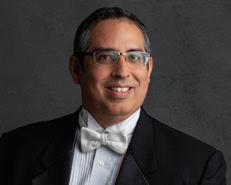
10
THANK
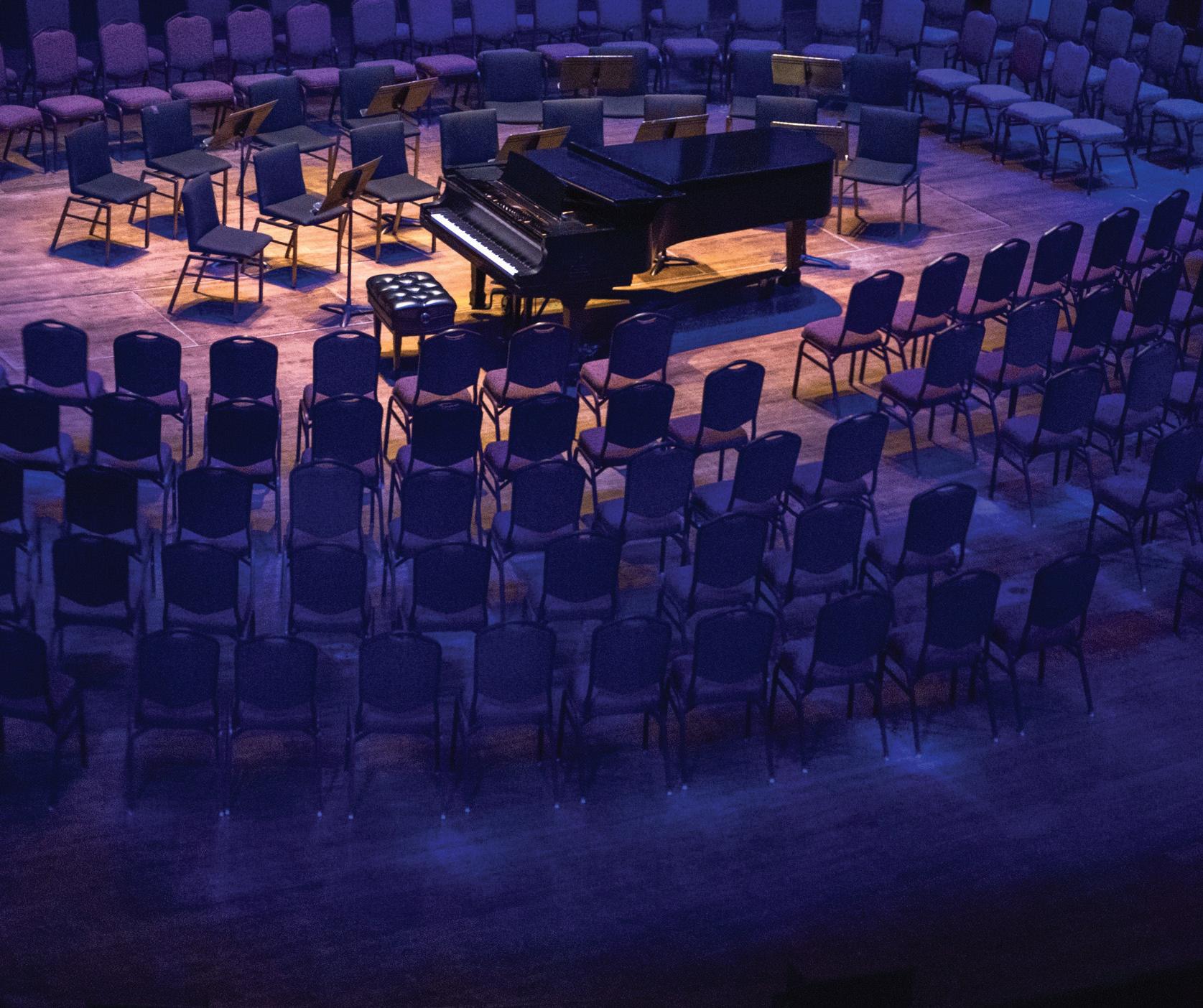
to our generous
11PSO360 BIOGRAPHY 2022-2023 SEASON Following each PSO360 concert, donors to our Annual Fund giving $2,500 or more are invited to a backstage reception. To learn more about these and other donor benefits, please visit pittsburghsymphony.org/donorbenefits Donate today at pittsburghsymphony.org/give
YOU
donors.
ASCEND TO THE STAGE
Shaham is one of the foremost violinists
time. His rare combination of flawless technique together with inimitable warmth and
of spirit has solidified his renown as a true master across the greatest stages of the world. As the Boston Globe lauded, “In a world full of outstanding violinists, Shaham is one of the few identifiable by sound and style

us as Shaham returns to the Heinz Hall stage together with our PSO Musicians

an exclusive evening paying homage to
Seating is very limited for this
so order early!
12
Immerse yourself in the center of the sound space, seated just inches from the artistry of Pittsburgh Symphony musicians and their special guests on the Heinz Hall stage. Surrounding them, as their sound surrounds you, you are part of a very exclusive 200-person audience. ALL TICKETS ARE $75 & LIMITED SEATING IS AVAILABLE, SO GET YOURS TODAY! Heinz Hall Box Office: 412.392.4900 | pittsburghsymphony.org/PSO360 PRESENTED BY Gil
of our
generosity
alone.” Join
for
Violin Mastery.
unmatched up-close experience,
Saturday, February 25, 2023 at 8:00 p.m. VIOLIN MASTERY WITH GIL SHAHAM



















 PROGRAM NOTES BY DR. RICHARD E. RODDA
PROGRAM NOTES BY DR. RICHARD E. RODDA







